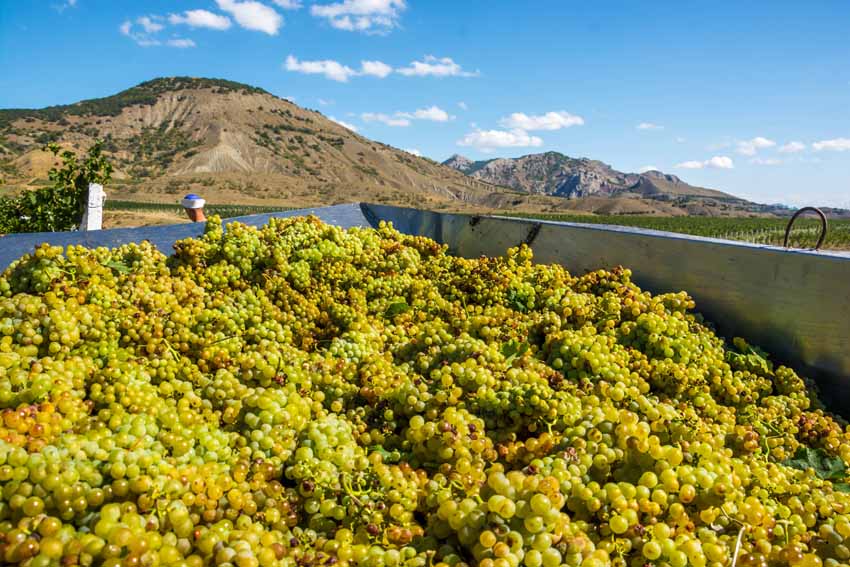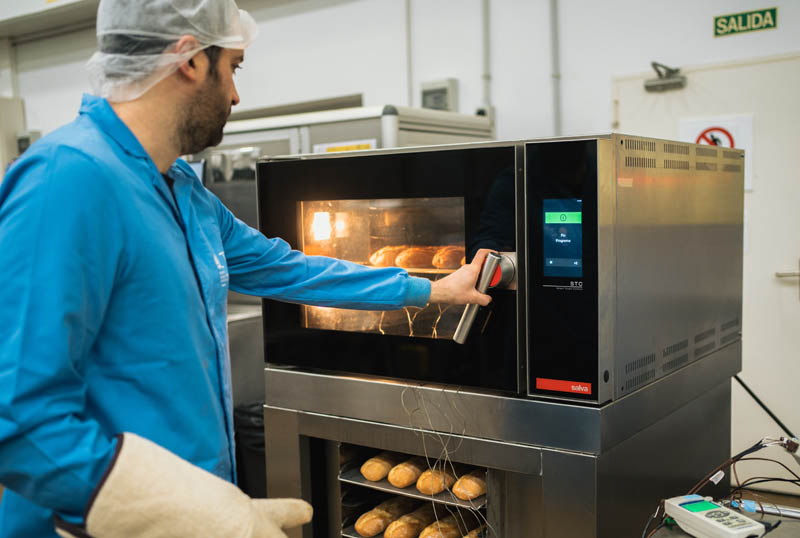Challenges and future perspectives for the agri-food sector
Últimas noticias
Una mirada LGTBIQ+ al reino animal
Circular Economy in Action: Valorisation of By-products through Projects like PRIMA NEWFEED
Strategic Perspectives: Highlights from the Food4Future World Summit for Business Leaders
In an interview with Noticias de Gipuzkoa, which we reproduce here in its entirety, we chatted with Iñigo Martínez de Marañón, Technological Director of AZTI and Coordinator of BRTA‘s Healthy Food Strategic Agenda, about the challenges facing the food sector and the future of the agri-food sector.
Índice de contenidos
- Give us some context, what are the main challenges in the food and agriculture sector today?
- What steps do BRTA believe should be taken to tackle the challenges facing the sector?
- What are the roles of business and consumers in changing the industry model? Can citizens play a role by changing their eating habits?
- On a social level, what food trends are catching on with consumers? Are they healthy trends?
- What food technology innovation projects are being developed at BRTA at the moment?
- AZTI recently organised the Food 4 Future international forum at the BEC, a leading event in technological innovation for the food sector. What new developments would you highlight among the innovations presented this year at the event?
- How do you think the food industry will change over the next fifteen years?
Give us some context, what are the main challenges in the food and agriculture sector today?
The main challenge for the food sector is to respond to a growing world population expected to reach 9 billion people by 2050. Global population growth coupled with increased purchasing power in new economies and specific population segments, in addition to the limited availability of traditional or current resources, may lead to higher social inequalities. On the other hand, the climate crisis will impact on the availability of these resources and may lead to resource depletion and competition, increasing prices for raw materials and derived foodstuffs. In turn, this crisis could be aggravated by the appearance of emerging risks that could affect, among others, food production and food security. In the same way, the impact of the war in Ukraine is causing a similar tension in the short term that is compromising the supply of certain food raw materials, and therefore making them more expensive, as well as major uncertainties throughout the food chain.
What steps do BRTA believe should be taken to tackle the challenges facing the sector?
In order to meet these challenges, it is necessary, among other things, to optimise the use of existing resources by improving the efficiency or yield of the use of raw materials, from the raw material source to the consumer, in order to reduce waste along the entire food chain. With this optimisation and the recovery of those unused raw material fractions and their food derivatives, the pressure on current food sources can be reduced to a certain level. However, this will not be enough to balance global population growth and the reduction, due to climate change, of current food production resources, so new ways of producing ingredients and foods and ensuring that these products are safe, healthy and sustainable will be required.
What are the roles of business and consumers in changing the industry model? Can citizens play a role by changing their eating habits?
In order to ensure healthy and sustainable food, the whole food chain must be involved, not only the companies in the chain itself but also the consumer (last link in the food chain) as well as other companies and entities that interact along the food chain (e.g. technology suppliers, industry and health-related entities, … ). Given that a significant part of food waste is produced at home, awareness and commitment of each person to contribute to the sustainability of the food chain is very relevant, and therefore, people in their different roles (consumer, educator, …), must adapt or change their habits to make a healthy and sustainable society.
On a social level, what food trends are catching on with consumers? Are they healthy trends?
Responsible and ethical consumption has become part of many people’s lifestyle, image and personal fulfilment, and it is one of the food trends identified. This is reflected in a higher demand for local, less processed products with a smaller environmental footprint and, especially, in the demand for new alternatives for animal protein. Health care and physical and mental wellbeing is also emerging as one of the most powerful trends influencing consumers’ daily behaviour, with a more proactive and preventive approach, linked to the desire to live longer and better. It is clear that there is a progress towards personalised nutrition that is undoubtedly being supported by the very rapid advances in science and technology. Finally, in a context where consumption opportunities are becoming more flexible, the boundaries between the physical and digital worlds are blurring, with innovative and intelligent solutions being incorporated to improve and personalise the shopping and consumption experience. Practical solutions are being explored to simplify our lives, which does not have to be incompatible with health. In fact, the food industry is innovating for convenience products (snacks, ready meals, …) with better and healthier nutritional profiles.

What food technology innovation projects are being developed at BRTA at the moment?
BRTA (Basque Research and Technology Alliance) has just defined a strategic R&D agenda in the field of Healthy Food, an agenda that has been defined with the participation of eight BRTA centres. This agenda has identified three major technological challenges in the field of healthy food: Safe ingredients and food, a challenge in which safer transformation processes and the development of rapid systems for detecting hazards and risks will be addressed; Ingredients and food with nutritional and healthy properties, a challenge that includes agro-livestock and aquaculture production aimed at improving the nutritional composition or healthy compounds, obtaining new ingredients for the development of products that guarantee a healthy diet, and the development of healthy foods aimed at the general and specific population; Personalised nutrition for active ageing, a challenge aimed at habits and needs for personalised healthy eating as well as precision nutrition based on omics technologies and data analytics.
AZTI recently organised the Food 4 Future international forum at the BEC, a leading event in technological innovation for the food sector. What new developments would you highlight among the innovations presented this year at the event?
The latest trends, solutions and technologies for innovation in the entire food value chain were presented thanks to the participation of international professionals and experts in the field of science, technology and industry (start-ups and consolidated companies). The innovations and advances presented at Food4Future covered the major challenges of the food chain: sustainability, healthy eating and the 4.0 transformation or digitalisation of the chain. Therefore, trends and solutions in the field of food waste, new protein sources, biotechnology (e.g. cell culture, …) and precision nutrition as an opportunity for new food of the future, the digitisation of the food chain through the capture (e.g. sensors, …) and smart data analysis as an opportunity to ensure full traceability and make the entire value chain more sustainable, gastronomy as a source of inspiration for the food industry, … have been discussed and presented.
How do you think the food industry will change over the next fifteen years?
The food industry, and in general all the companies in the food chain, will be digitalised and the different players in the chain will be able to have, in real time, digital traceability that guarantees safety, confidence and sustainability of food, more efficiency, agility and versatility in operations that integrate the entire business of companies (all the processes or departments of the companies), better adaptation to the changing needs of the market or customers (e.g. consumer), etc. This digital transition carried out by the chain will also be a support, together with the knowledge and different solutions that are being developed in R&D centres (e.g. BRTA) and in new technology-based companies, to ensure sustainable and healthy food that meets the general and particular needs (personalisation) of consumers, who will have a longer life expectancy thanks, among others, to the prevention of food-related diseases, to the advances that will have been made in the field of health and finally to a more aware population with healthier habits.







